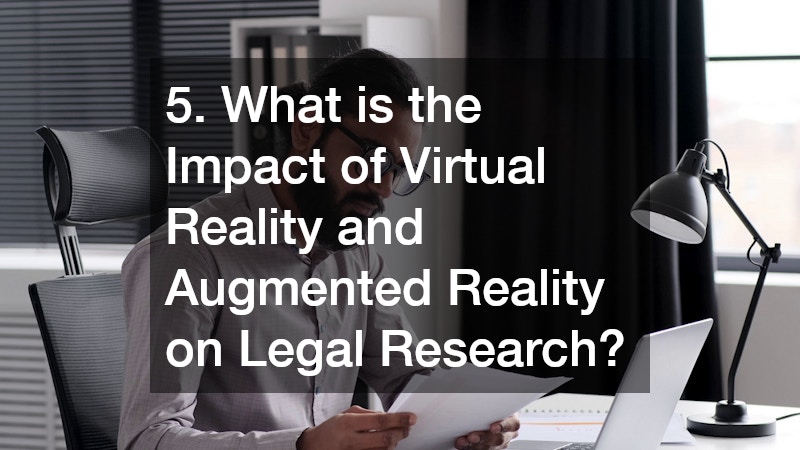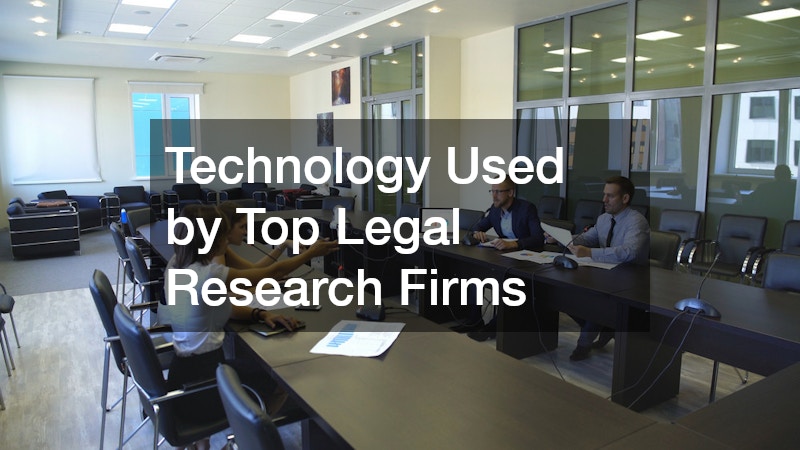Explore the cutting-edge technologies that top legal research firms are utilizing to enhance their services and streamline legal research processes. This article delves into the innovations revolutionizing the legal industry.
1. What are the Key Technologies Used by Top Legal Research Firms?
1.1 Artificial Intelligence and Machine Learning
Artificial Intelligence (AI) and Machine Learning (ML) have made significant inroads into the legal research domain, offering transformative solutions. By automating routine tasks, AI and ML allow legal professionals to focus on more complex problem-solving and analysis.
AI technologies are employed to perform exhaustive legal research tasks more efficiently and accurately than traditional methods. As a result, legal researchers experience a significant increase in productivity, enabling them to provide better insights to clients.
Machine learning algorithms can learn from vast datasets to identify patterns and trends that would be impossible for humans to detect. Consequently, they help legal firms forecast case outcomes and make informed strategic decisions based on data-driven insights.
1.2 Natural Language Processing
Natural Language Processing (NLP) tools are becoming increasingly vital in analyzing legal documents and extracting pertinent information seamlessly. These tools are capable of interpreting complex legal language, simplifying document review processes.
NLP systems excel at making sense of the layers of legalese that can often obscure the critical elements of a case. They can transform verbose documents into concise information, benefiting legal professionals in crafting precise arguments.
Furthermore, NLP facilitates automatic indexing and categorization of documents, enhancing accessibility and ease of use for legal teams. This ensures lawyers spend less time sifting through paperwork and more time focused on client-oriented tasks.
2. How Do Legal Research Platforms Incorporate Data Analytics?
2.1 Predictive Analytics
Predictive analytics leverage historical data to forecast future case outcomes, guiding legal strategies more effectively. By offering insights on the probability of success, legal firms can better allocate resources and devise winning strategies.
These analytical tools can help identify trends within vast repositories of case law, revealing patterns that might be advantageous in future litigations. As such, predictive analytics have become indispensable in crafting forward-thinking legal advice.
The use of predictive analytics also extends to client relationship management by anticipating client needs and providing tailored services. This helps law firms foster stronger client relationships and maintain a competitive edge in the industry.
2.2 Big Data Management
The management and analysis of big data have become cornerstones of effective legal research, allowing firms to sift through extensive legal databases quickly. Techniques in big data management include the use of advanced database technologies and cloud computing platforms.
By harnessing big data, legal research platforms can derive meaningful insights from otherwise overwhelming amounts of information. This capability enhances decision-making processes and provides a tactical advantage in legal practice.
Big data management can drastically reduce the time required to gather relevant case law and legal precedents. Thus, legal professionals can deliver prompt and comprehensive advice, improving client satisfaction and case outcomes.
3. What Role Does Cloud Computing Play in Legal Research?
3.1 Remote Access to Resources
Cloud computing plays a critical role in providing top legal research firms with remote access to vast legal databases and resources. This technology supports work flexibility, enabling legal teams to operate efficiently from any location.
By utilizing cloud services, law firms can collaborate effectively across different geographies, pooling resources seamlessly. It also ensures that legal professionals have the tools they need at their fingertips, regardless of where their work takes them.
3.2 Data Security and Compliance in the Cloud
Data security and compliance are paramount considerations for legal firms harnessing cloud computing solutions. The cloud offers robust encryption techniques and advanced security measures to protect sensitive legal information.
Cloud providers often comply with stringent legal standards to ensure data integrity and confidentiality. This compliance ensures that firms can confidently manage client data and uphold their reputations as trusted legal advisors.
4. Which Legal Research Tools Leverage Blockchain Technology?
4.1 Smart Contracts
Legal research tools are beginning to adopt blockchain technology to develop smart contracts, aiming for greater efficiency and transparency. Smart contracts automatically enforce and execute the terms of an agreement, reducing reliance on intermediaries.
By using blockchain’s decentralized ledger system, smart contracts ensure that all parties involved have access to the same contractual information. This uniformity offers a clearer and more reliable basis for executing legal agreements.
4.2 Transparent and Immutable Records
Blockchain technology’s ability to create transparent and immutable records offers significant advantages to the legal research sector. Each transaction on the blockchain is securely recorded and cannot be tampered with, fostering trust and accountability.
This transparency allows for more straightforward verification processes, especially in areas such as property rights and intellectual property management. Legal professionals can easily access verifiable records, supporting more informed decision-making.
5. What is the Impact of Virtual Reality and Augmented Reality on Legal Research?
5.1 Virtual Reality Courtroom Experiences
Virtual Reality (VR) technology provides legal researchers with unique opportunities to simulate courtroom experiences, aiding in preparation and training. Lawyers can rehearse arguments and explore different trial strategies in a realistic virtual environment.
By utilizing VR, legal teams can enhance their ability to plan for court cases and witness the flow of proceedings, leading to improved advocacy skills. This immersive approach to legal education empowers lawyers to gain firsthand experience in virtual courtrooms.
5.2 Augmented Reality for Evidence Analysis
Augmented Reality (AR) technologies play a crucial role in enhancing the analysis of legal evidence, making it more interactive and accessible. AR can overlay digital information onto the real world, giving legal professionals new perspectives on complex cases.
By employing AR, legal teams can visualize complex data and evidence in innovative ways, enhancing understanding and communication. This immersive experience allows for a deeper dive into the evidence, fostering thorough preparation and collaboration.


